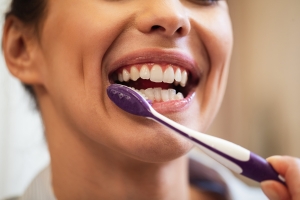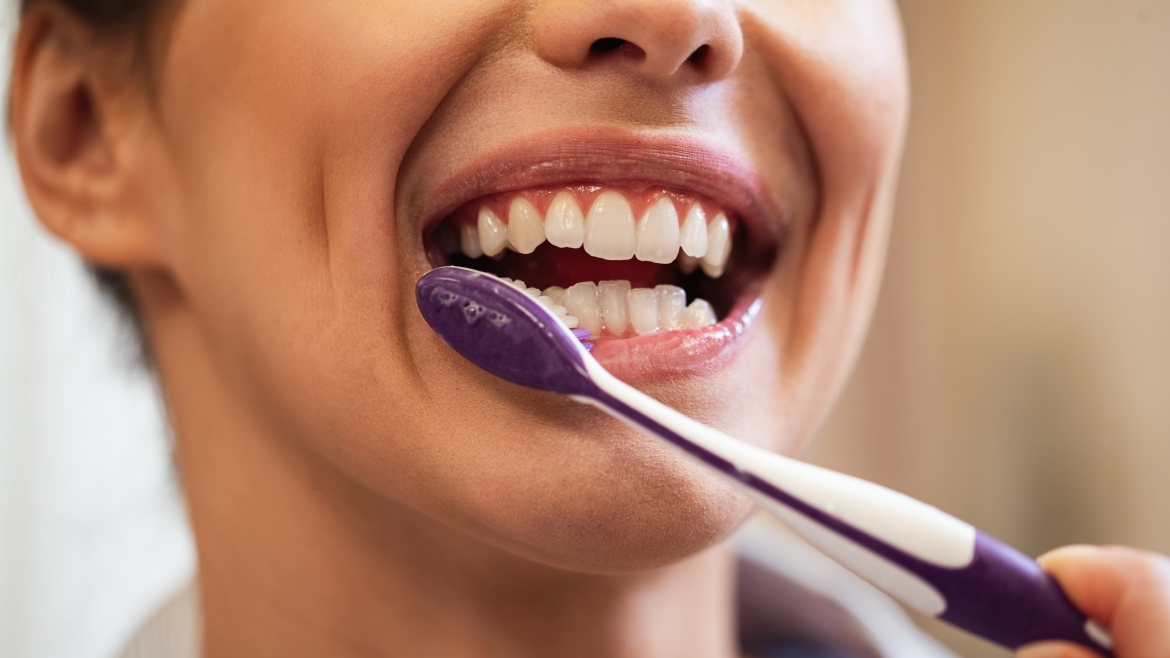 Would it come as a surprise if I mentioned that there is a correlation between headaches and oral health? Gum disease, also known as periodontal disease, is a prevalent dental condition that affects millions of people worldwide. In today’s fast-paced world, headaches have become a common complaint affecting millions of people.
Would it come as a surprise if I mentioned that there is a correlation between headaches and oral health? Gum disease, also known as periodontal disease, is a prevalent dental condition that affects millions of people worldwide. In today’s fast-paced world, headaches have become a common complaint affecting millions of people.
While headaches can have various causes, one often overlooked aspect is the link between poor oral health and headaches. We are committed to shedding light on this crucial connection, providing you with detailed insights into how oral health can influence headaches and how you can take steps to prevent them.
In this blog, we will explore whether gum disease can cause headaches and delve into the potential link between the two.
Understanding Gum Disease:
Gum disease is an inflammatory condition that affects the gum tissues surrounding the teeth. It is primarily caused by bacterial plaque buildup along the gumline, leading to infection and inflammation. If left untreated, gum disease can progress and eventually damage the supporting structures of the teeth, causing tooth loss. Common symptoms of gum disease include red, swollen, or bleeding gums, persistent bad breath, and loose teeth.
The Multifaceted Nature of Headaches
Headaches can be debilitating and disrupt our daily lives, hindering productivity and causing unnecessary discomfort. It’s essential to recognise that headaches are not a single entity but rather a multifaceted phenomenon with numerous possible triggers. Stress, tension, dietary factors, medical conditions, and infections can all play a role in the onset of headaches.
The Link Between Gum Disease and Headaches:
While gum disease primarily affects the oral cavity, emerging research suggests that there may be a connection between oral health and headaches. The link appears to lie in the body’s inflammatory response triggered by the bacterial infection in the gums. When the immune system detects this infection, it releases inflammatory substances that can travel through the bloodstream and affect other parts of the body, including the brain.
Inflammatory Response and Headaches:
Headaches can be triggered by various factors, including stress, hormonal changes, and certain medical conditions. In the case of gum disease, the release of inflammatory substances can potentially impact blood vessels and nerves in the head and neck region, leading to headaches. Additionally, the body’s overall inflammatory response may contribute to an increased risk of headaches.
Seeking Professional Dental Care:
If you’re experiencing headaches and suspect gum disease as a possible cause, it’s crucial to seek professional dental care promptly.
A visit to Manor House Dental can provide you with a comprehensive examination to assess your oral health. Our skilled team of dental professionals will evaluate your gum health, identify any signs of gum disease, and recommend appropriate treatment options.
Preventing Gum Disease and Headaches:
Prevention is always better than cure, and this applies to both gum disease and headaches. Practising good oral hygiene habits, such as regular brushing, flossing, and using an antibacterial mouthwash, can help reduce the risk of gum disease. Additionally, attending regular dental check-ups and cleanings is essential for early detection and treatment of any dental issues.

Beyond oral hygiene, adopting a healthy lifestyle can contribute to overall well-being and potentially reduce the risk of headaches.
Managing stress, getting sufficient sleep, staying hydrated, and following a balanced diet are all factors that can positively impact both oral health and headache management.
The Oral Health and Headache Connection
Surprisingly, the health of our mouths can also contribute significantly to headaches, migraines, and even earaches. The oral cavity is a complex ecosystem, and any disruptions within it can have far-reaching effects on the rest of the body. Understanding the connection between oral health and headaches can empower you to take better care of your overall well-being.
Bruxism and Tension Headaches
One of the primary ways poor oral health can lead to headaches is through a condition known as bruxism. Bruxism is the unconscious clenching or grinding of teeth, often occurring during sleep. The excessive force exerted during bruxism can strain the jaw muscles, leading to tension headaches. Addressing bruxism through appropriate dental interventions can alleviate these headaches and improve your quality of life.
Malocclusions and Migraines
Malocclusions, also known as bite problems, can be another culprit behind chronic headaches and migraines. When the teeth do not align correctly, it can create an imbalance in the way the jaw closes, leading to muscle strain and tension in the head and neck. Seeking orthodontic treatment to correct malocclusions can significantly reduce the frequency and intensity of migraines.
Oral Infections and Referred Pain
Oral infections, such as gum disease or abscessed teeth, can generate referred pain, causing discomfort in various areas of the head and face. The nerves in our mouths are interconnected, and when infection is present, the brain may interpret the pain signals as originating from different regions. Timely dental care and preventive measures can prevent oral infections and the accompanying headaches.
Preventive Strategies for Optimal Oral Health
Now that we have explored the profound connection between oral health and headaches, it’s essential to consider preventive strategies to maintain your overall well-being and minimise the risk of headaches.
Here are some practical tips to incorporate into your daily routine:
Regular Dental Check-ups
Scheduling regular dental check-ups and cleanings is vital to catch any potential oral health issues early on. Your dentist can identify signs of bruxism, malocclusions, and oral infections, allowing for timely interventions.
Custom Mouthguards
If bruxism is a concern, your dentist may recommend a custom-made mouthguard to wear during sleep. A mouthguard acts as a protective barrier, preventing excessive teeth grinding and reducing tension headaches.
Orthodontic Treatment
If malocclusions are causing headaches or migraines, seeking orthodontic treatment can correct the alignment of your teeth and jaws, providing lasting relief from discomfort.
Maintaining Good Oral Hygiene
Practicing good oral hygiene, such as regular brushing, flossing, and using mouthwash, can prevent oral infections and reduce the likelihood of referred pain and earaches.
Stress Management
Since stress is a significant factor in headaches, implementing stress management techniques like meditation, yoga, or deep breathing exercises can have a positive impact on both oral and overall health.
Schedule an appointment with your dentist today to address both toothache and headache concerns.
At Manor House Dental, we are committed to providing you with comprehensive dental care and guidance to improve your overall well-being. The link between poor oral health and headaches is undeniable. Bruxism, malocclusions, oral infections, and TMJ disorders can all contribute to headaches, migraines, and earaches.
Taking proactive steps to maintain optimal oral health through regular dental check-ups, custom mouthguards, orthodontic treatment, and good oral hygiene can significantly reduce the frequency and intensity of headaches.
FAQs:
Q: Can untreated gum disease lead to more severe health issues?
A: Yes, untreated gum disease can potentially lead to serious health issues beyond headaches, such as cardiovascular problems and diabetes complications. Proper dental care and regular check-ups are essential to prevent the progression of gum disease.
Q: Can gum disease cause jaw pain along with headaches?
A: Yes, gum disease can cause jaw pain, which may contribute to headaches. The inflammation and infection in the gums can affect the jaw joint, leading to discomfort and headaches.
Q: Are there any home remedies for gum disease and headaches?
A: While home remedies may provide temporary relief, they do not replace professional dental care. It is essential to consult with a dentist for appropriate diagnosis and treatment of gum disease and related headaches.
Conclusion:
In summary, gum disease can potentially cause headaches due to the inflammatory response triggered by the bacterial infection in the gums. If you are experiencing persistent headaches and suspect gum disease as a possible cause, seeking professional dental care is crucial.
At Manor House Dental, our team is dedicated to providing comprehensive oral healthcare and addressing your dental concerns. By maintaining good oral hygiene and adopting a healthy lifestyle, you can promote not only your oral health but also your overall well-being.


